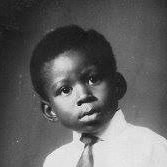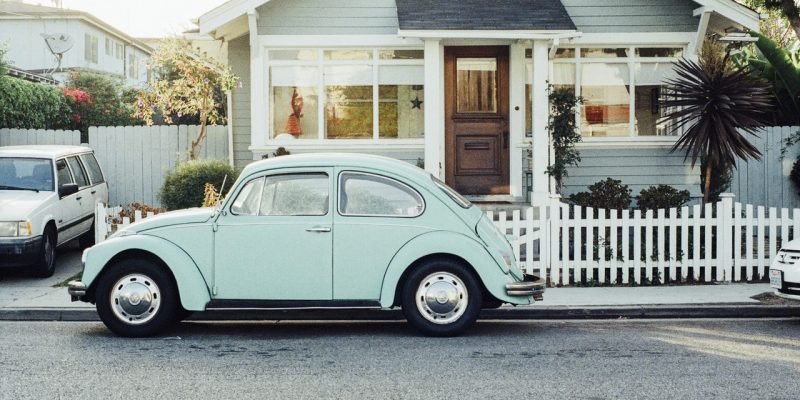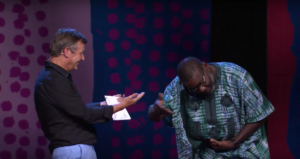Against the appropriate backdrop of the ongoing pro-reforms protests is the sobering fact that close to 50% of Nigerians are in the death grip of multi-dimensional poverty. Nigeria as the Margaret Thatcher famously once remarked ‘Nigeria is a rich country full of poor people.’ So what is new about rich man…poor man in Nigeria? Nothing really. Enjoy!
Cautiously edging my way through the dense multi-coloured vegetation of human foliage that is downtown Lagos at rush hour, I couldn’t help noticing the various expressions on people’s faces.
With the oppressive heat of the noonday sun, hitting us in unrelenting waves, beads of perspiration charting their way in tiny rivulets, and people winching disapprovingly at the sweltering heat, the faces I saw presented a truly animated picture.
A picture with diverse images, hues, shapes and movement — all indicative of the rich variety of people that commute to central Lagos daily.
They were a motley crowd …the brisk young executives in their well-cut suits, smartly weaving in and out of the human traffic, perhaps on their way to a business lunch date.
The older and rotund top level executives in their expensively cut suits, strolling leisurely, and in deep animated conversation with their European business partners, perhaps discussing the arrival of the next consignment of rice.
The trendy youngsters in the latest fashion (straight from Paris) with measured struts, consciously displaying their fineries and of course their hairdos. The odd man or woman in lace, or at least in “native attire.”
The numerous hawkers peddling everything from (South African grown) apples to toy xylophones. Their more sedentary colleagues yelling their heads off, promising fantastic bargains.
And most numerous of all, urchins, beggars, madmen, cripples, and in one phrase, the destitute, each living by their wits alone in a very hostile and indifferent society, each dependent on charity for their very existence.
But coming back to their expressions— despite their diversity, I could detect in all the faces some kind of tension (like a coiled up spring) varying in degrees and intensity, from the uneasy complacence of the rich; through to the apprehension of the middle and working class; right down to the open resentment, discontentment and hostility of the poor and destitute.
Nobody seemed happy, everybody seemed unsure, suspicious… ready to fight to keep what he has got, and even more viciously to get what he has not. There was undoubtedly a static charge in the air that seems to go well with the hustle, bustle and squalor of Lagos.
Maybe it’s my imagination, or maybe not, but beneath the façade of normalcy, there is a growing feeling of mass discontentment that threatens to burst up through the ground, in an explosive conflagration, consuming all … the rich, the not-so-rich, and the hapless poor.
Unless of course we reorder our priorities and equitably redistribute the wealth of our nation. As it is now, the wealth of this country is firmly in the grasp of a small segment, maybe five percent of the total population of this country.
This class of “nouveaux riche,” compromising mostly of middlemen distributors, the so-called “emergency contractors,” and importers, are by far the wealthiest people in this country, with the exception of a handful of industrialists.
But instead of circulating their wealth, by investing in industries and providing job opportunities, they are content with stashing their money in un-numbered Swiss bank accounts, or buying ridiculously expensive condominiums in London or Europe.
This comprador class of businessmen and professionals naturally are the ruling class. And they luxuriate, albeit uneasily, surrounded by all the totems of wealth — big house, big cars, video sets, and nowadays, privates jets. Cocooned from the squalor, and penury that characterises the existence of millions of Nigerians, life for the rich is a bed of roses …without the thorns. And they are prepared to do anything to keep it so …anything!
Moving down the ladder to a middle class who, for a large part, hovers tentatively between sliding down into the cold, cold grasp of poverty, or getting that big break that would catapult them into the easy streets of ‘Naira Power’.
And that mixed feeling of optimism and apprehension about the future is generally the motivation of the Nigerian middle class. Maybe that’s why they are so desperate for financial success.
Because in the Nigeria of today, dignity, integrity, honesty – all societal standards of yesteryear – don’t mean a damn thing when juxtaposed with the bargaining power of Almighty Naira. And it’s either you have it or you don’t.
And most Nigerians don’t. Without sounding too factual, at least eighty percent of Nigerians exist at barely subsistence levels. In the villages, life for a large part has remained relatively unchanged …unchanged, or untouched by the supposed benefits of modernity or the oil boom, or austerity measures?
They are poor and it seems as if they will remain so, unless the people at the top change their minds and make life easier for them.
Life is not easy either for the working class. Attracted by the bright lights of city life, and the promise of more Naira, and possibly a better life, once in the city, their illusions are immediately shattered.
No water, no light, no transport, no food, and no jobs, but plenty of armed robbers …this is city life.
And with the current austerity measures, things for the poor man have gone really bad. And until the rich man-poor man gap is narrowed, life in this country will remain as it is …uncertain.
The Punch,
Saturday, June 19, 1982

Mr. Lardner holds a Bachelor degree in Philosophy from the University of Lagos, and over the last twenty-five years gathered wide international experience including serving as an Adjunct Professor, Centre for New Media at the Columbia University School of Journalism (1996-8) and as a Research Fellow, Freedom Forum Media Studies Centre (1992-3) also at Columbia University. Mr. Lardner was also a Reuter Scholar/Knight Fellow with the Department of Communications at Stanford University (1988-9).
Mr. Lardner is an Internet savvy and globally recognized media and communications expert, having managed complex communications advisory services for various countries including Nigeria, as well as a sought after public policy analyst with a deep and broad understanding of the uses and impact of new information technologies and communications paradigms in the process of good governance in transiting democracies. He is a TED Fellow and the Executive Director of WANGONeT a technology-based non-profit he founded in 2000. He is currently sits on the board of Orun Energy, a promising business start-up focusing on providing alternative power for the Telecommunications sector in the developing world.


